© 2024 MJH Life Sciences™ and Patient Care Online. All rights reserved.
Beyond Boomers: CDC Urges HCV Screening for All US Adults
HCV is now diagnosed in millennials at about the same rate as in baby boomers; CDC responds with a recommendation for HCV screening in all adults aged ≥18 years.
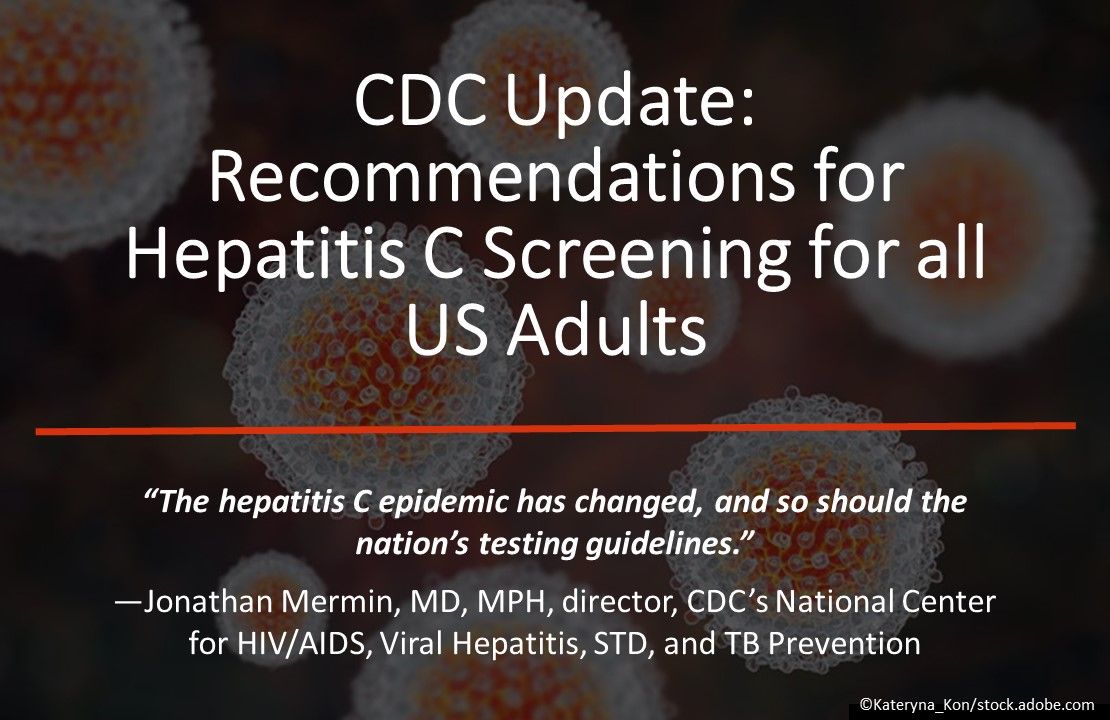
According to an April Morbidity and Mortality Weekly Report from the US Centers for Disease Control and Prevention (CDC), the number of millennials diagnosed with chronic hepatitis C virus (HCV) infection in 2018 was equal to the number of baby boomers diagnosed that year. In response to the report's findings, the CDC released updated testing recommendations for HCV infection to include all adults aged ≥18 years. Scroll through the slides above for more findings from the report and testing recommendations.
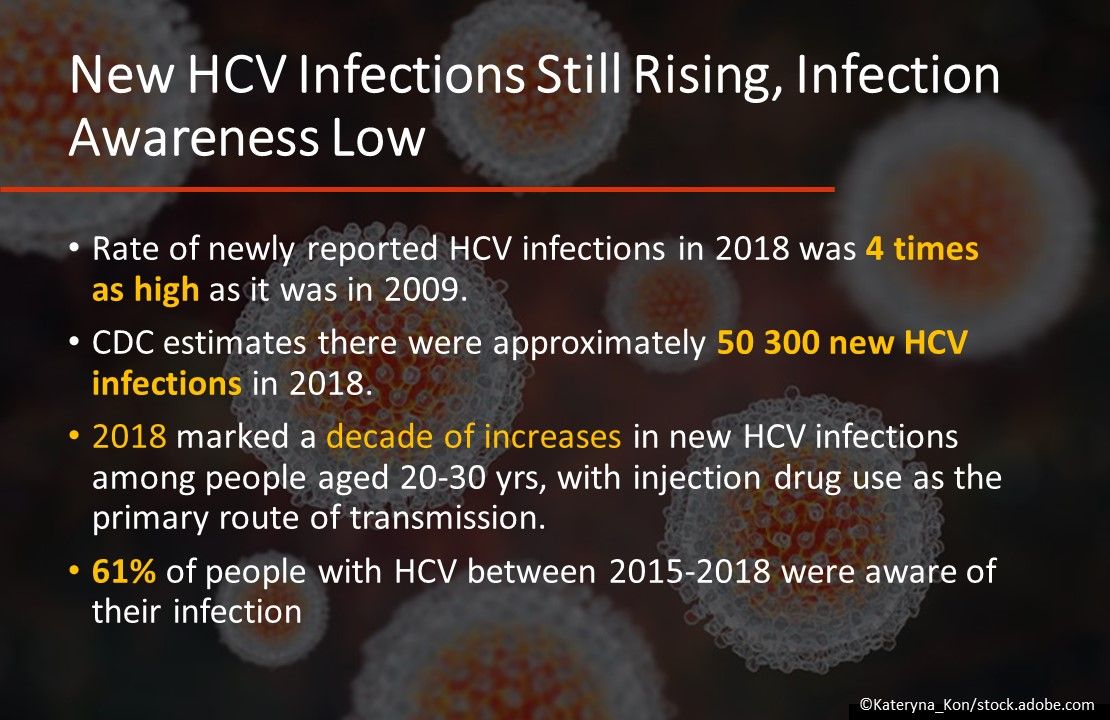
The rate of new HCV infections reported to the CDC in 2018 was 4 times as high as it was in 2009 and the CDC estimates there were approximately 50 300 new HCV infections in 2018. Also, 2018 marked a decade of increases in new HCV infections among young adults aged 20-30 years, with injection drug use as the primary route of transmission coinciding with the ongoing opioid epidemic. Despite these increases, awareness is still low with 61% of people with HCV who were aware of their infection between 2015 and 2018.

During 2018, a total of 3621 cases of acute HCV were reported and the highest rate of reported acute HCV cases was among those aged 20-29 years (3.1/100 000 population), followed by those aged 30-39 yrs (2.6), 40-49 yrs (1.3), 50-59 (0.9), and ≥60 yrs (0.4). This age pattern was consistent throughout 2009-2018, but absolute increase in annual case counts per 100 000 highest for those aged 20-39 years.
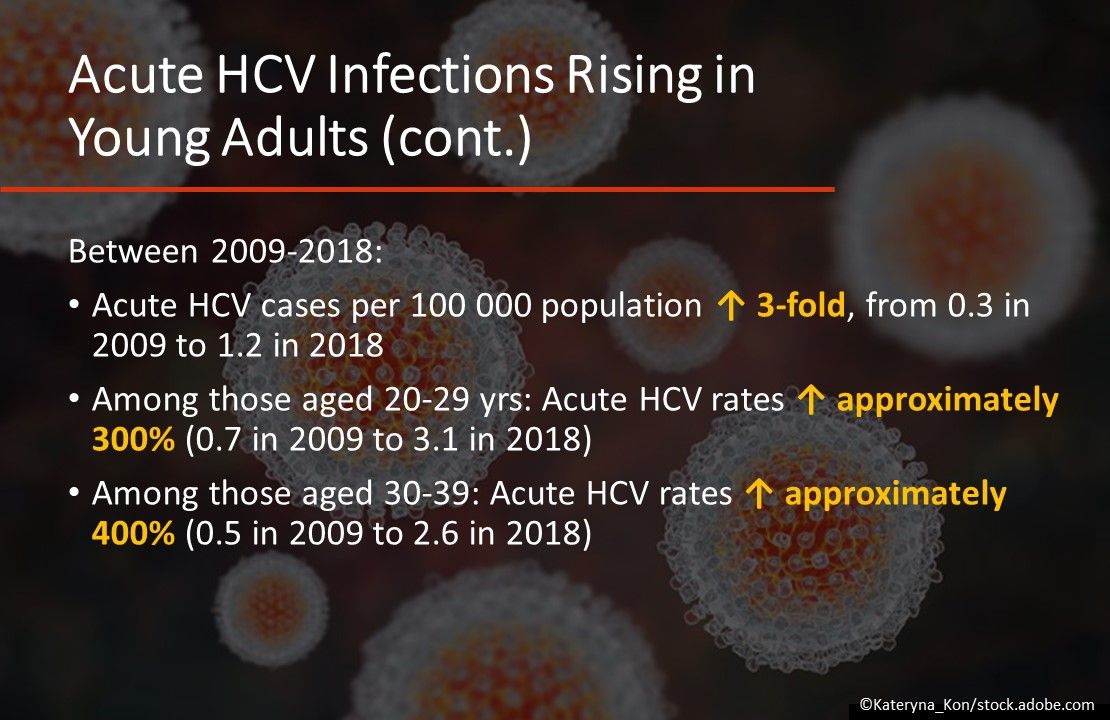
Between 2009 and 2018, acute HCV cases per 100 000 population increased 3-fold, going from 0.3 in 2009 to 1.2 in 2018. Acute HCV rates increased approximately 300% (0.7 in 2009 to 3.1 in 2018) among patients aged 20-29 years and approximately 400% (0.5 in 2009 to 2.6 in 2018) among patients aged 30-39 years.

In 2018, 137 713 new chronic HCV cases were reported (63.1% men, 36.9% women) and among both men and women, a bimodal age distribution was observed, with the largest proportion of all newly reported chronic cases among patients aged 20–39 and 50–69 years. Also, in 2018, baby boomers accounted for 36.3% of newly reported chronic HCV cases, generation X accounted for 23.1%, and millennials accounted for 36.5%.
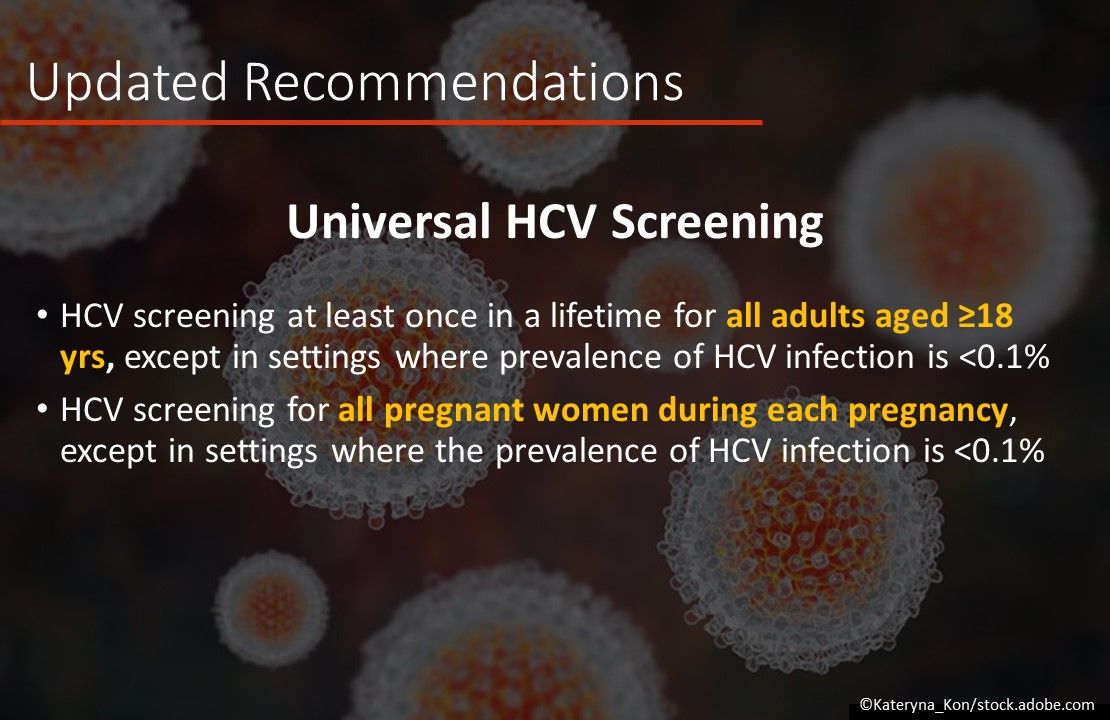
Universal HCV screening recommendations:
- HCV screening at least once in a lifetime for all adults aged ≥18 years, except in settings where prevalence of infection is <0.1%
- HCV screening for all pregnant women during each pregnancy, except in settings where the prevalence of infection is <0.1%
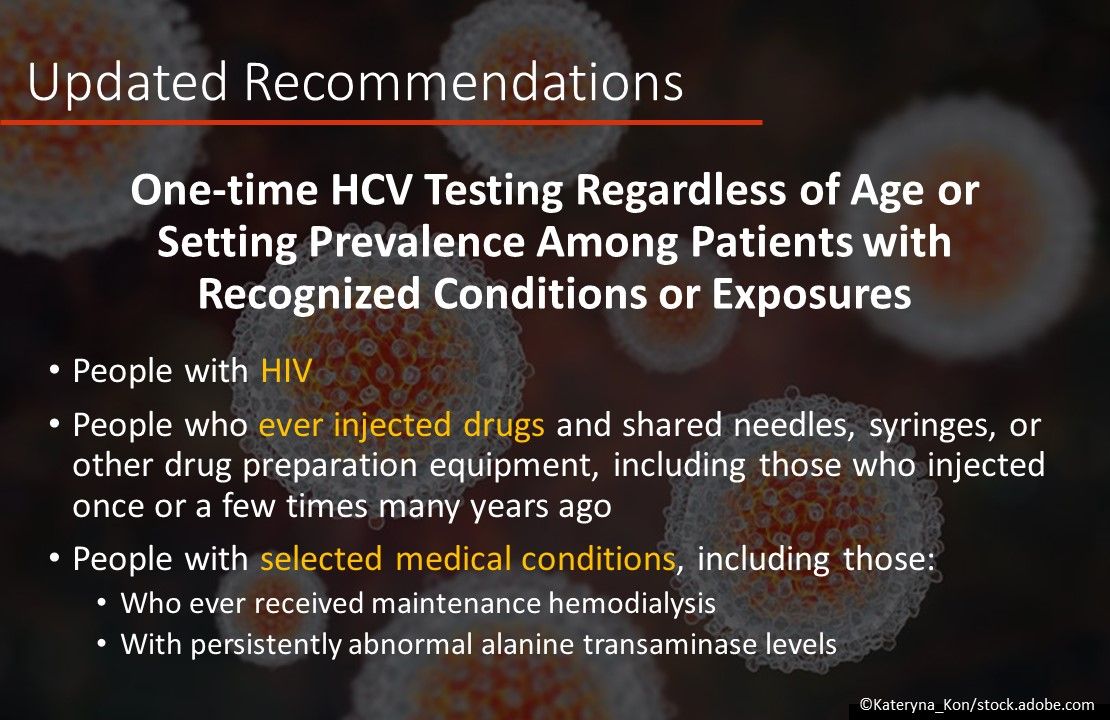
One-time HCV testing regardless of age or setting prevalence among patients with recognized conditions or exposures:
- People with HIV
- People who ever injected drugs and shared needles, syringes, or other drug preparation equipment, including those who injected once or a few times many years ago
- People with selected medical conditions, including those who ever received maintenance hemodialysis and those with persistently abnormal alanine transaminase levels

One-time HCV testing regardless of age or setting prevalence among patients with recognized conditions or exposure (cont.):
- Prior recipients of transfusions or organ transplants, including those who received clotting factor concentrates produced before 1987, a transfusion of blood or blood components before July 1992, an organ transplant before July 1992, or were notified that they received blood from a donor who later tested positive for HCV infection
- Health care, emergency medical, and public safety personnel after needle sticks, sharps, or mucosal exposures to HCV-positive blood
- Children born to mothers with HCV infection
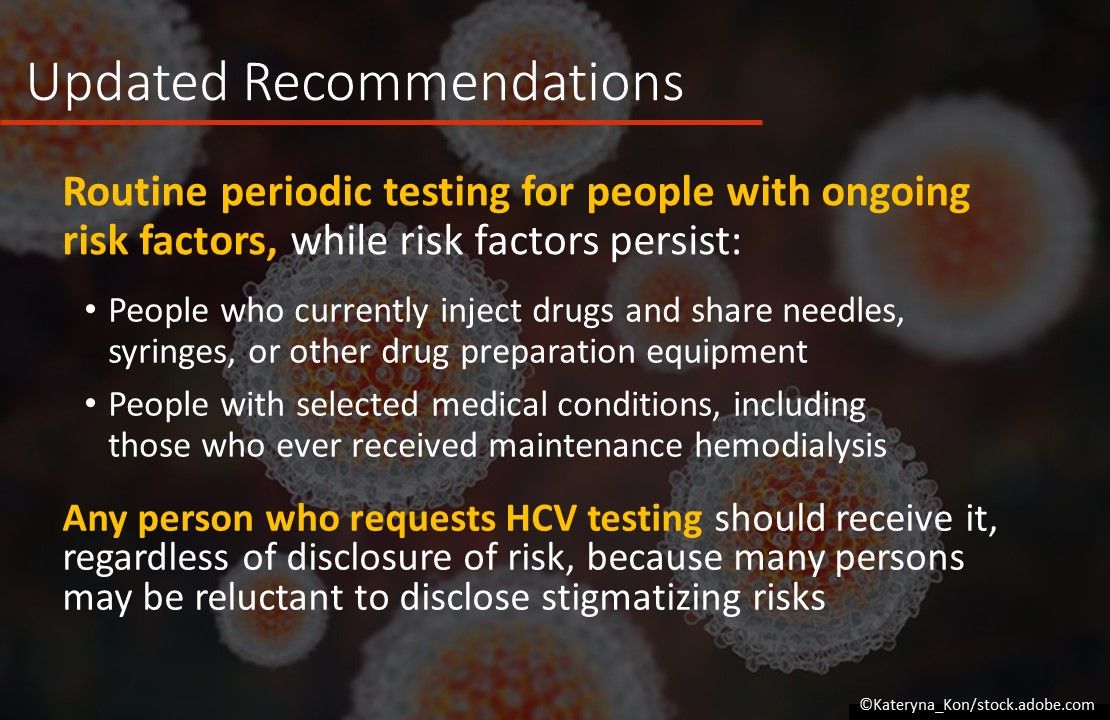
Routine periodic testing for people with ongoing risk factors, while risk factors persist:
- People who currently inject drugs and share needles, syringes, or other drug preparation equipment
- People with selected medical conditions, including those who ever received maintenance hemodialysis
Any person who requests HCV testing should receive it, regardless of disclosure of risk, because many persons may be reluctant to disclose stigmatizing risks.

